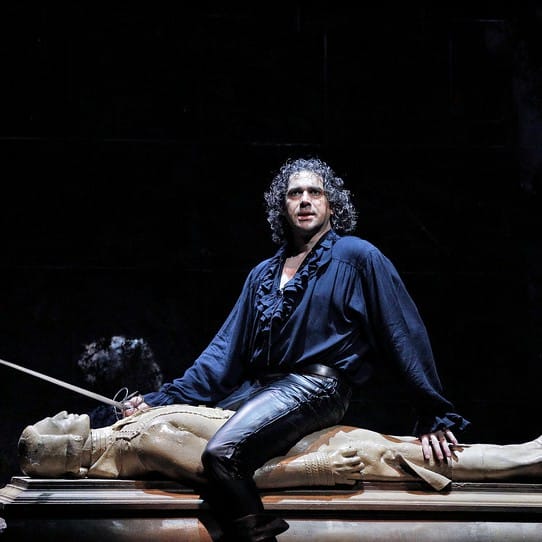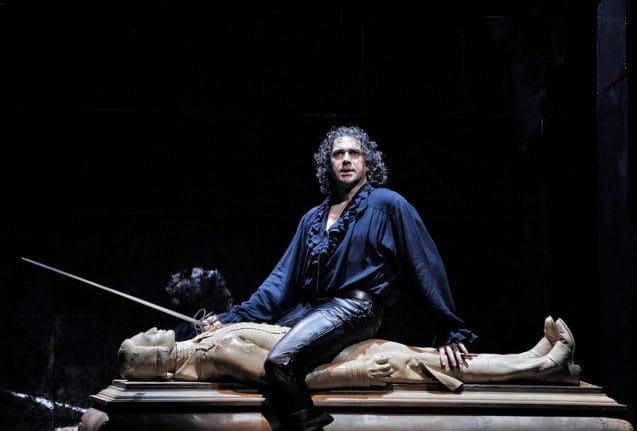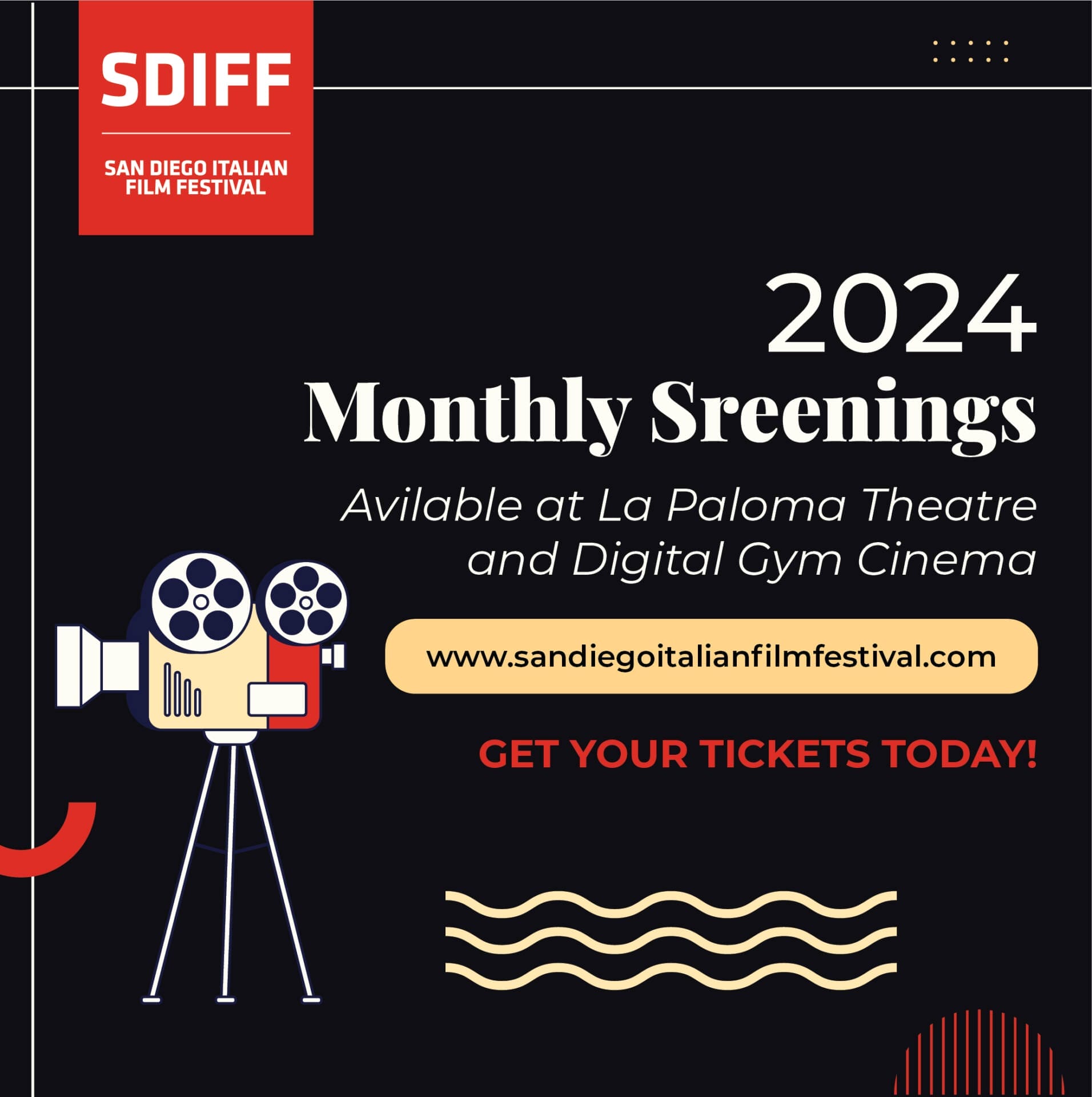Don Giovanni: Taking Your Husband to the San Diego Opera
Article by Kristen (and Andrew) Schweizer
On February 14, 2015 I took my cinephile husband to Don Giovanni at The San Diego Opera. It is the second production of their fiftieth season and a crowning achievement. People who attend opera consider Don Giovanni, first performed 1787 and written by Wolfgang Amadeus Mozart, to be among his greatest operatic works.
Modern television and cinema have the unique opportunity as a storytelling medium in its ability to create “dense meaning.” By this I mean, a television program or film can manipulate time so that the viewers can see multiple stories unfold in unison. Within eleven minutes, a film has typically introduced all its major players and plot – within two hours an exceptionally complicated story can be told weaving in and out characters, developing and killing subplots, and illustrating how interwoven and connectable the medium can be (raise your hand if you’ve seen “Love Actually”).
Theatre and opera do not have that luxury. For generations, the stories written for staged works are more linear and straightforward. Even with the development of projections and automated sets, staged works require the audience to allow themselves to be transported.
The benefit of seeing opera or live theatre stems from the importance of reprogramming our modern brains to pull meaning and emotions from single-scene narratives. You cannot intensify the experience of the story through special effects, editing to condense a story and sweep up the audience with only the “juiciest cuts” of plot. The simplicity of the operatic narrative requires a much higher degree of initial emotional buy-in from the viewer.
Like hearing the song of whales’, operatic beauty is not necessarily to be understood literally, the voices that fill the Civic Theatre are filled with a myriad of emotions that reverberate throughout the opera house demanding to be felt, not solely listened to.
Don Giovanni tells the story of a wicked knight (Don Giovanni, Ildebrando D’Arcangelo) who seduces and/or rapes hundreds of women across Europe. After being caught attempting to seduce a noble woman (Donna Anna, Ellie Dehn), he kills her father and flees. Giovanni continues to chase multiple women, while those whom he had wronged (and then men who love them) in the past, attempt to bring him to justice. It is a surprisingly indelicate plot, with sizzling seduction and the scenes to match.
Coincidentally, earlier on Valentines Day, Andrew and I had watched an episode of A&E’s Bates Motel, starring Vera Farmiga. In a recent episode, one of the characters reveals that she had been raped – and is immediately accused of embellishing the truth. A brutal argument ensues, and the scene ends with the woman standing alone, staring out the window with tears flowing down her face. Fade to black.
Donna Anna’s voice vibrates with this pain as she tells the story of her attempted rape by Giovanni. Entire portions of the aria are without English captions, but no one in the audience missed the meaning behind the song. The words are unnecessary: the helplessness, the fear, the horror and betrayal were in her voice. For endless minutes, the transfixed silences and brilliant, passionate pain are intermingled in her song.
These two characters – one from a fictional Humboldt County small town and the other from 18th century Spain – share the same pain. In both their stories, these women are telling men they trust the truth of their past. In both their stories, these men are not sure whom to believe. The same, tired injustice can be found in my Sunday morning New York Times, my morning soap opera, a dusty novel, a brand-new paperback, and in the lives of 25% of American women. The 3,000 patrons attending the opening of Don Giovanni may not have been watching the complex, plot-dense machinations of modern photographic technique, but they certainly were not watching a dead story or antiquated emotions of the 1700s.
The best way to give Mozart’s opera a fair shake is to pretend we do not live in the world of Christopher Nolan and give yourself to the music, to appreciate the patience, horrors, and beauty of the unedited life.
Instead of three seconds of a woman looking at the window and then learning to cope with her pain, we had six minutes of a woman haunting us in Italian. Her pain, the tears, the horror of injustice, and the understanding that her innocence cannot be returned to her. Her agony was not minced, it was not brushed under the rug to rush along to the next plot line.
Maybe it was dress I wore, maybe it was the occasion. But after we left the Civic, even to a cinephile, opera won.





Great to see Don Giovanni generating discussion. Da Ponte’s libretto, Act I, Scene 13, when Donna Anna is describing what happened in her room to Don Ottavio, she says “I thought the cloaked figure was you, Don Ottavio.” In the 18th Century, a betrothed couple should have not been alone in a bedroom, ever. They would have always been accompanied by a chaperone. So why does Donna Anna think the cloaked figure was Don Ottavio?!? wishful thinking? is she trying to excuse herself? Minor point: depending on how DG is staged, does Don Giovanni ever to first base? Major point: Da Ponte wrote his libretto to be ambiguous, so some questions will be discussed continually by fortunate audiences.